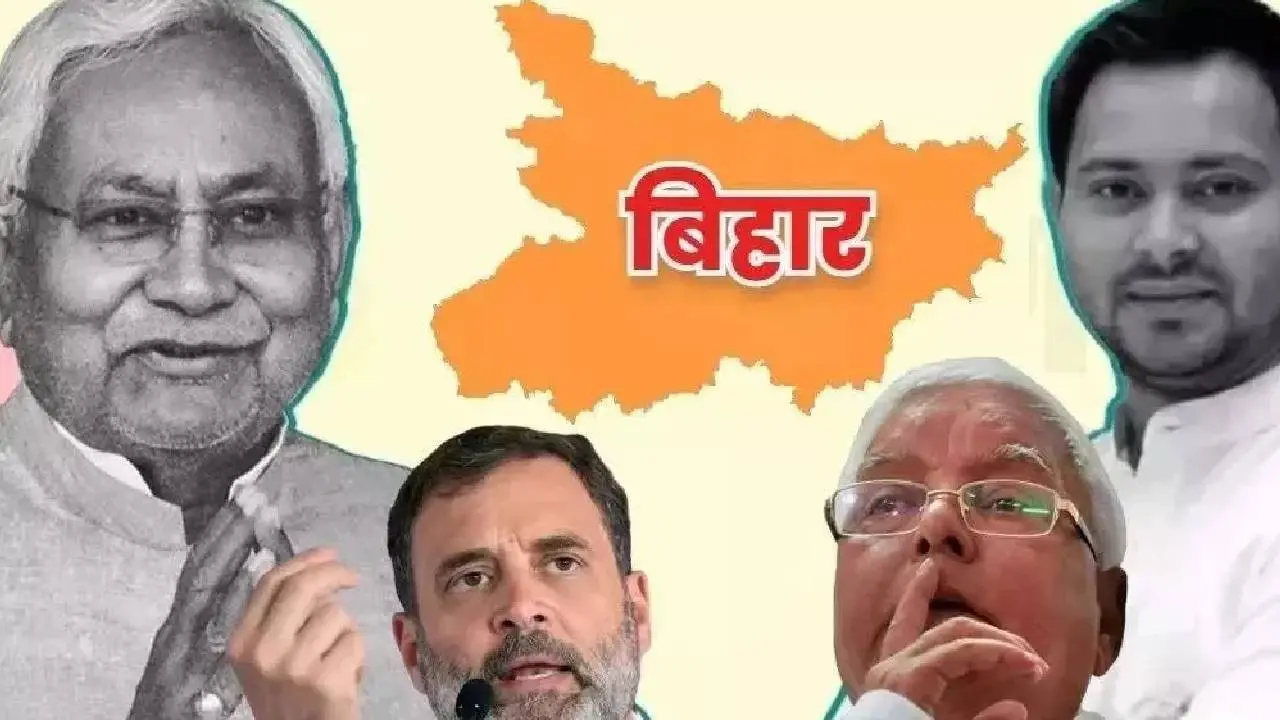
The Election Commission (Social Media)
National News: As Bihar heads toward its next assembly elections, the political landscape has been rocked by a major development. Under the Election Commission’s Special Intensive Revision (SIR) of the voter list, 35.5 lakh names have already been removed, and the figure could rise to 70 lakh—nearly 9% of the state's total electorate.
According to the Election Commission, the removed names include deceased voters, those who have relocated, and duplicate registrations. However, opposition parties argue this is not merely a technical exercise but a deliberate political maneuver. The Grand Alliance (RJD-Congress) claims that this process targets the poor, Dalits, and migrant laborers, effectively stripping them of their voting rights.
RJD leader Tejashwi Yadav has strongly criticized the move, calling it an “attack on democracy.” He warns that even if 1% of voters—around 800,000 individuals—are removed, it could directly impact the outcome in at least 35 assembly seats. In the 2020 elections, many constituencies saw margins of victory under 3,000 votes. If an average of 3,200 voters is removed from each constituency, it could significantly alter the final results, even reversing outcomes in some key battlegrounds.
Experts point out that Seemanchal, Kosi, Champaran, and Eastern Bihar—areas with high concentrations of rural populations, migrants, and socially marginalized communities—are witnessing the highest number of voter name removals. These regions are strongholds for RJD, Congress, and regional leaders like Pappu Yadav. In districts like Kishanganj, Araria, and Purnia, many voters lack Aadhaar linkage or residence documents, making them vulnerable to being removed. Migration and inadequate documentation are common in these districts, increasing the likelihood of voters being dropped from the rolls.
While the Election Commission insists the names removed are those with inconsistent or duplicate entries, opposition leaders allege that political motives are driving these actions.
Political analysts believe the NDA (BJP-JD(U)) stands to benefit. Their support base includes urban, middle-class, and permanent residents, who typically have proper documentation and are less likely to be affected. BJP strategists view this revision as an opportunity to clean voter rolls of irregular entries and increase urban turnout, which could work in their favor.
Although JD(U) has so far remained cautious in its public response, internal sources suggest the party sees this process as a chance to weaken the opposition’s core vote bank.
The Mahagathbandhan has approached the Supreme Court, which has agreed to hear the matter and set a date for the next hearing. If the court finds flaws in the Election Commission’s procedures, it may order a reassessment of the voter list. This legal battle could become a pivotal factor in the run-up to the 2025 elections, possibly reshaping the political narrative in the state.
Though the voter list revision appears administrative on the surface, its political implications are profound. The issue goes beyond statistics—it strikes at the heart of representation, class equity, and democratic participation. The key question now is whether the Election Commission can maintain transparency and public trust or whether this voter purge will become a central issue in the 2025 election campaign, shaping narratives and outcomes alike.





Copyright © 2026 Top Indian News
